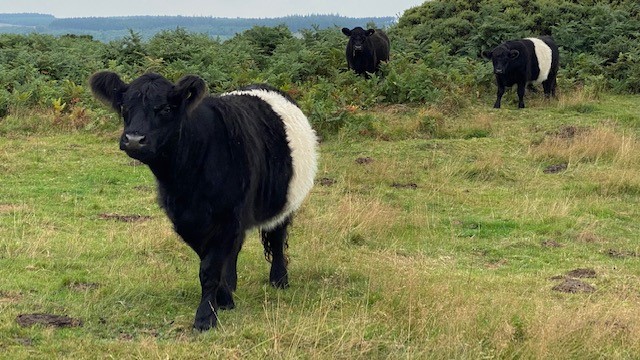(Belted Galloway: native species may be vulnerable to regional differences)
As the 2024 harvest draws to a close, it can hardly be called vintage – poor establishment, moderate prices and catchy harvest weather – to follow on from the dreadful 2023 edition.
Agriculture is generally unstable as English farmers, looking for some certainty, are increasingly turning to the Sustainable Farm Initiative (SFI) to underwrite their businesses, even if their initial intention is that this should be for the short term.
However, in contrast to the previous Basic Payment (BPS) regime, these new public payments are based on the provision of some “public goods”. The sustainability referred to in the scheme is not just to keep farmers in business, it is also to support the environment.
Opinions vary on the definition of good, but the scales are clearly tipped towards more environmentally friendly operations. Prescriptions under the SFI range from radical cropping changes to modified use of inputs such as fertiliser and sprays and basic management plans for soil, pests and nutrients. Many of the measures have an immediate impact, while others are slanted more towards education and longer-term cultural change.
Poor weather, some would say part wider climate change, has contributed to the speed of change, with many farmers using legume fallows to compensate for poor establishment conditions. This has had an immediate impact on the overall extent of cash crops, and farm contractors in particular have been hit by major reductions in cropping areas. It remains to be seen whether farmers are persuaded by the soil conditioning impact of the measure or whether they will revert to continuous cropping when conditions allow. The weather and world commodity prices may be the overriding factor.
Other prescriptions involve reductions in fertiliser and sprays. The compensation is designed to lead farmers away from overuse, particularly on less productive land. Many arable farmers are happy to completely forego insecticides, which may only have been used occasionally as a precautionary measure, but which can have a major impact on pollinators and other invertebrates.
There have been some unexpected complications where demand is exceeding supply. The supplement for grazing native species on environmentally rich grazing areas requires specific breeds and registered stock. However, not only is there a shortage of this “rare breed” livestock, but farmers are also finding that those imported from out of their area may have different tolerances to disease; cattle from west of the Pennines may quickly succumb to infestations of eastern ticks and other afflictions.
The latest SFI 2024 introduced in August is currently suffering from teething problems, but the overall policy direction is now clear. If the climate volatility was not making farmers rethink their approach, then the incentives in the SFI should be adding impetus, for as long as they remain funded from the legacy of the BPS.
The application process has been largely automated and can be done online with a range of supporting mapping software. However, although it is tempting to cherry-pick the most lucrative prescriptions to underwrite farm income, serious time and thought needs to be given to the management, monitoring and claim process.
Although DEFRA has promised a “lighter touch” enforcement regime, there will be inspections, and detailed records will need to be produced. The most sustainable of the SFI schemes need to be built around and underwritten by a sound and practical farm policy. This then must be supported by the most relevant prescriptions, rather than being a collection of options designed to claim the most return, with little regard to the implications.
For better or worse, the SFI model is a complex delivery mechanism which requires careful planning and thought, particularly when a farm may have multiple overlapping schemes running in parallel.
Experts at Galbraith have the expertise and access to the technology to help farmers benefit from this.
